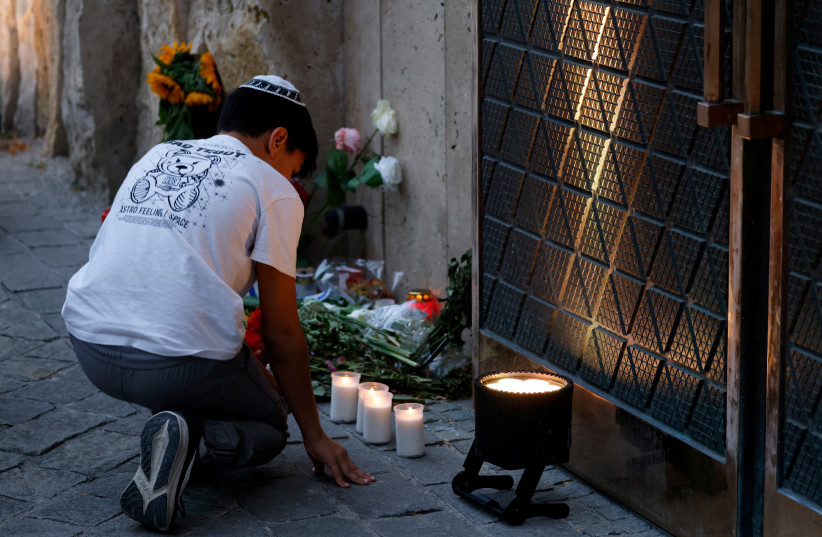In the aftermath of Hamas's "Day of Rage" call on October 20, cities worldwide witnessed premature outbursts of demonstrations. According to a report by the Diaspora Affairs and Combating Antisemitism Ministry, published this weekend, these public expressions of anger were further amplified by a chilling directive from ISIS on October 19, instructing its followers to target Jewish entities globally. “This escalation is not just an immediate security concern but serves as a reflection of simmering global tensions,” the report explained.
These acts of violence took place in light of the Hamas Massacre on 7 October 2023. Over 1,400 Israelis were tragically killed, and more than 5,000 wounded. Alarmingly, 212 individuals were abducted, and between 100 to 200 are still missing.
The stark reality: a resurgence of antisemitism
Amidst this backdrop of heightened geopolitical tensions, antisemitic incidents have disturbingly proliferated:
In Germany, a sharp 240% year-over-year rise in incidents was recorded in just one week, signaling a severe societal problem.

Spain's Melilla, with its historically harmonious communities, saw its peace shattered by riots near a synagogue.
Buenos Aires, in Argentina, received email threats targeting the Israeli and US embassies, a chilling reminder of past terror attacks in the country.
Far north in Canada, a Toronto school bore witness to a hate crime, rekindling debates about antisemitism's stubborn presence.
The world responds, in multifarious tones
Germany has found itself at a cultural and diplomatic crossroads, evidenced by the withdrawals from the iconic Frankfurt book fair.
Meanwhile, in Spain, protests erupt, confronting institutions symbolizing Israel, while Melilla's historically Jewish sites come under threat.
Countries like Serbia, Greece, India, Australia, and Argentina show the conflict's far-reaching implications, with their mix of protests and shifts in corporate and diplomatic positions.
In the United States, the national dialogue swirls around policy interventions, university protests, corporate responses, and philanthropic gestures, painting a complex tableau of the American response.
The Arab perspective: diverse and definitive
While Egypt assumes a mediator's mantle, the streets of Jordan reverberate with protests. In the Gulf, nations like Saudi Arabia and the UAE tread carefully with their statements, with Qatar openly expressing support for Gaza. According to the report, the positions of Lebanon, Iraq, and Bahrain provide a comprehensive insight into the intricate web of Middle Eastern geopolitics.
The Director-General of the Diaspora and Combating Antisemitism Ministry, Avi Cohen Scali, stated: "The online realm serves as a battleground in every sense. We employ every tool at our disposal to diminish antisemitic hate speech and safeguard Jews [worldwide], as well as [other] Israelis."
